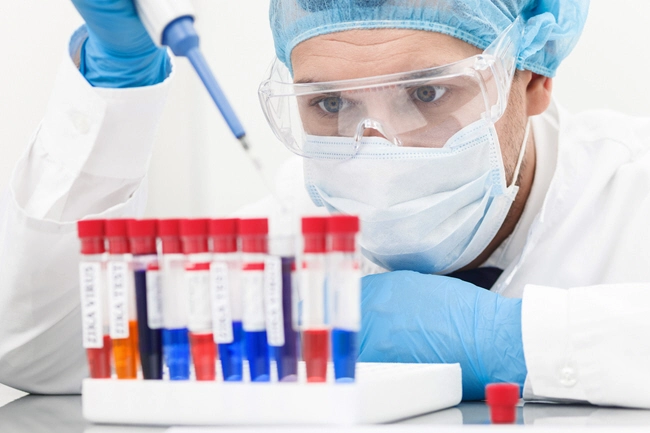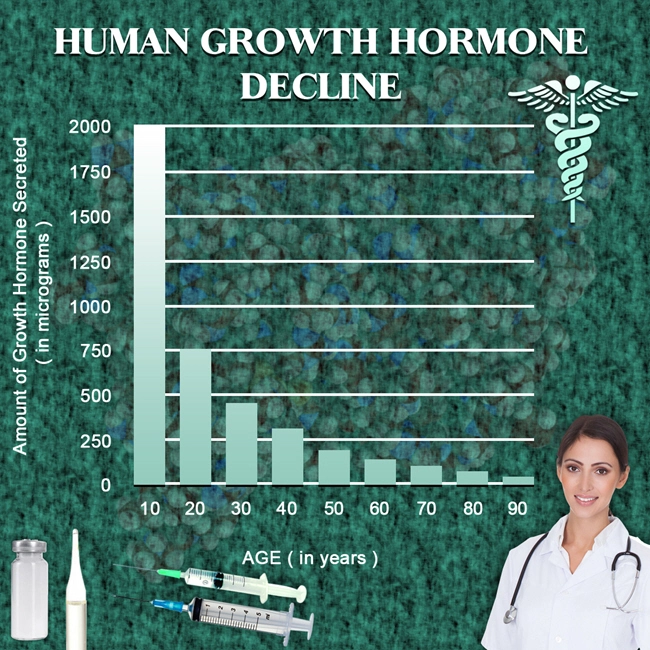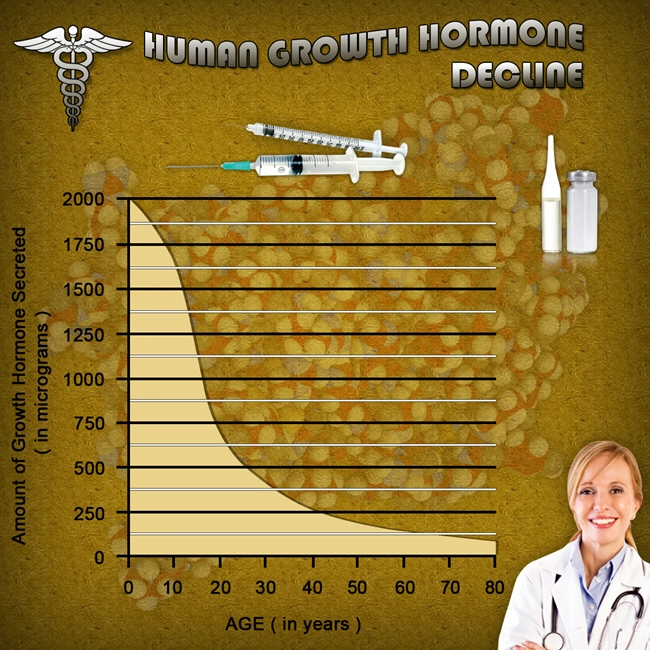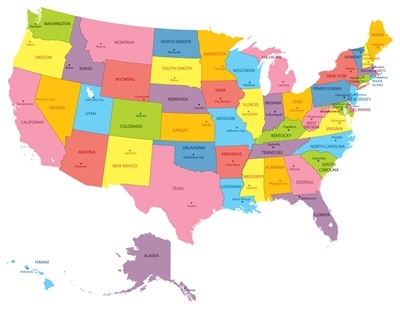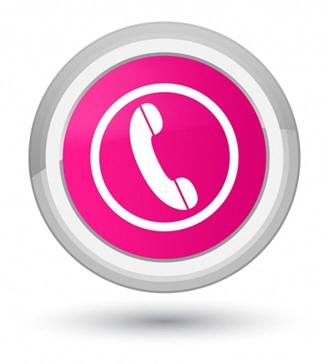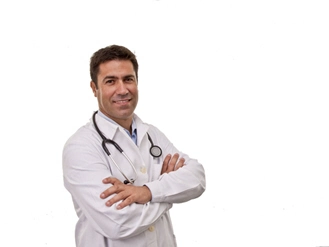
Video Link: https://vimeo.com/287899246
Video Download: Click Here To Download Video
Video Stream: Click Here To Stream Video
When you have finished injecting Human Growth Hormone (HGH), it is essential to dispose of the needle correctly. This is important for several reasons. 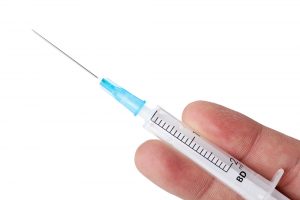 Used needles pose a danger to both people and pets, especially children.
Used needles pose a danger to both people and pets, especially children.
In addition to the risk of injury, there is a far more serious consideration: the spread of diseases caused by infection...conditions such as
- Hepatitis B (HBV)
- Hepatitis C (HCV)
- Immunodeficiency Virus (HIV)
Before we go any further, a few definitions are in order.
The first one is: “What are sharps?”
Sharps is a medical term for devices with sharp points or edges that can puncture or cut and pierce the skin. Examples of sharps include the following:
- Needles: hollow needles used to inject drugs (medications) under the skin
- Syringes: devices used to inject medication into or withdraw fluid from the body
- Lancets: these are also called “fingerstick” devices. They are instruments with a short, two-edged blade used to get drops of blood for testing. Lancets are used most often by diabetics, who must regularly check their blood sugar levels.
- Auto-Injectors: Included in this category are epinephrine and insulin pens. These are syringes pre-filled with fluid medication designed to be self-injected into the body.
- Infusion sets: these are tubing systems with a needle used to deliver drugs to the body
- Connection needles/sets: these are needles that connect to a tube used to transfer fluids in and out of the body. These are most commonly used by patients who are on home hemodialysis.
Sharps are used everywhere: home, work, and on the road.
They allow people to self-manage their medical conditions, and those of their pets.
Sharps are used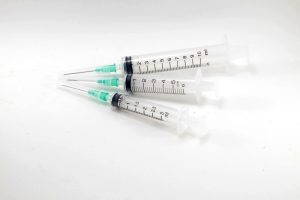 to manage a wide array of severe afflictions: allergies, arthritis, cancer, diabetes, hepatitis, HIV/AIDS, infertility, migraines, multiple sclerosis, blood clotting disorders and psoriasis.
to manage a wide array of severe afflictions: allergies, arthritis, cancer, diabetes, hepatitis, HIV/AIDS, infertility, migraines, multiple sclerosis, blood clotting disorders and psoriasis.
When you consider that there are an estimated 9 million Americans who rely on needles and other sharps to control their medical condition, you can easily see that improper disposal of sharps has the potential to become a huge problem.
Safe, sharp disposal is necessary anywhere, regardless of where you are: at home, at work, at school, traveling, or any public place, such as parks, hotels, and restaurants.
The Importance of FDA-Cleared Sharps Disposal Containers
The Food and Drug Administration (FDA) recommends that used needles and other sharps be placed in FDA-cleared sharps disposal containers immediately after use.
FDA-cleared sharps disposal containers are usually available through pharmacies, medical supply companies, health care providers, and online.
The FDA has evaluated the safety and effectiveness of these containers and has cleared them for use by healthcare professionals and the public to help reduce the risk of injury and infections from used sharps.
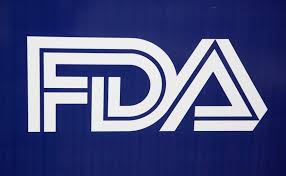 These approved containers are made of rigid plastic and come conveniently marked with a line that tells you when the tank is considered full, which means it is time to dispose of it.
These approved containers are made of rigid plastic and come conveniently marked with a line that tells you when the tank is considered full, which means it is time to dispose of it.
Please read the following carefully: overfilling a sharps disposal container increases the risk of accidental needle-stick injury.
When your sharps disposal container is approximately three-quarters (¾) full, it is time to dispose of it properly.
Also, DO NOT reuse sharps disposal containers.
FDA-cleared sharps disposal containers are available in a wide variety of sizes, including smaller travel sizes which are perfect for your use while away from home.
If you are flying, don't forget to check the Transportation Security Administration (TSA) website for the latest rules concerning your sharps.
To make things somewhat smoother with airport security, make sure your medicines are labeled with the type of medication and the manufacturer's name or a drug store label, and bring your prescription and a letter from your physician.
Whether FDA-cleared or not, all sharps disposal containers should share the following characteristics:
- Be made of a heavy-duty plastic
- Be able to close with a tight-fitting, puncture-proof lid that will keep sharps from falling out
- Stay upright and stable during use
- Be leak-resistant
- Be adequately labeled to warn of hazardous materials inside the container
To make sure you don't spread any dangerous diseases, or injure someone as a result of your carelessness, memorize the following rules:
Don't
- Throw sharps into the trash
- Flush needles and other sharps down the commode
- Recycle needles and other sharps. They are not recyclable, so never put them in the recycle bin
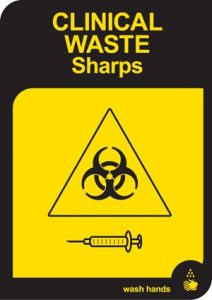
- Try to remove, break, bend or recap a needle that was used by someone else. This can lead to accidentally sticking yourself with the needle, which may result in severe infection and possible disease transmission.
- Attempt to remove the needle without a needle clipper device, because the needles could fly off, fall, or get lost and harm another person. Needle clippers make syringes unusable by clipping off the needle. Clippers may be used for needle disposal of small needles (like insulin syringes), but not for clipping lancets. After the needle clipper clips off the needle from the syringe, the needle is automatically and safely contained inside the clipper. Please do not try to cut a needle with any other tool except a needle clipper. The needle clipper is designed to do the job safely.
Do
- Put needles and other sharps in a sharps disposal container immediately after use to reduce the risk of needle-sticks, cuts or punctures from loose
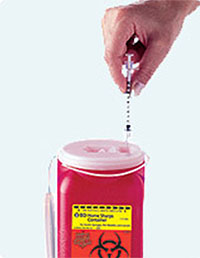 sharps
sharps
- Only use an FDA-approved sharps disposal container whenever possible. However, there may be times when an FDA-approved container is unavailable. If this happens to you, remember that some organizations and community guidelines recommend using a heavy-duty plastic household container (such as a laundry detergent container) as an alternative.
- If you must use a home container, make sure that it has essential features of a safe disposal container. It should be made of heavy-duty plastic, be able to close with a tight-fitting, puncture-proof lid without sharps being able to fall out, stay upright and stable during use, be leak-resistant and adequately labeled.
- Always be prepared. Remember to bring a long a portable sharps disposal container when you are traveling
- Follow all of your community's guidelines, local laws and regulations for getting rid of your sharps disposal container. You may be able to drop off your sharps disposal container at an approved collection site, like a doctors' office, hospitals, pharmacies, health departments, medical waste facilities, or police and fire stations. These may be free or have a minimal fee. You may also be able to drop off your used container at a public household hazardous waste collection site. These sites commonly deal with things like paint, household cleaning chemicals, and motor oil. You may also be able to mail specific FDA-cleared sharps disposal containers to a collection site for proper disposal. This is convenient, but most often there is a fee involved. Lastly, your local government may provide a particular waste pickup service that sends trained individual waste handlers to collect sharps disposal containers. Again, it is convenient, but probably not free.
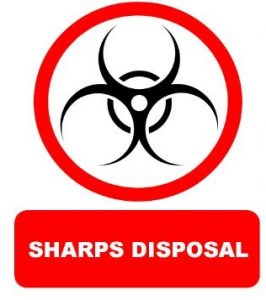
- Check with your healthcare provider, veterinarian, hospital or pharmacist about where and how you can obtain FDA-cleared sharps disposal containers, if they can dispose of your used needles or other sharps, or if they are aware of any safe disposal programs located near you
- Keep all needles, other sharps, and sharp disposal containers away from children and pets
- If for some reason you need to put a cap back on the needle, don't bend or break the needle, and NEVER remove a needle from a syringe by hand. This can easily result in accidental needle-sticks, cuts or punctures. Recapping should only be done with a medical device or the following one-handed technique: Place the cap on a flat surface with something firm to place the needle cap against, hold the syringe with the needle attached in one hand while slipping the needle into the cap without using the other hand, then push the capped needle against a firm object to “seat” the needle firmly using only one hand.
What to do if you are accidentally stuck by another person's needle or other sharp:
If this happens, stay calm, wash the exposed area immediately with soap and water, or use a skin disinfectant (antiseptic) like rubbing alcohol or hand sanitizer. Then seek immediate medical attention by calling your physician or your local hospital.
Follow these same procedures if you get blood or other bodily fluids in your eyes, nose, mouth, or on your skin.
To keep things simple, remember these two steps:
- Place all needles and other sharps in a sharps disposal container immediately after they have been used. DON'T PROCRASTINATE!
- Dispose of used sharp disposal containers according to your local community guidelines
If you are injured or experience a device malfunction when using sharps or a sharps disposal container, contact the FDA at 1-800-FDA-1088 or online through MedWatch, the FDA Safety Information and Adverse Event Reporting Program and file a voluntary report.
When making the 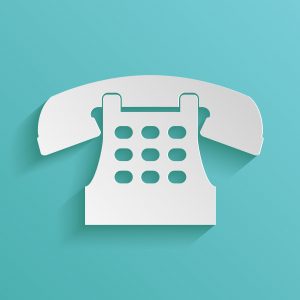 report, please include the manufacturer's name and distributor's name, the device name (brand name), the date the device was manufactured and the details of the event and any medical and surgical interventions if they were required.
report, please include the manufacturer's name and distributor's name, the device name (brand name), the date the device was manufactured and the details of the event and any medical and surgical interventions if they were required.
Government regulations require that you throw away used needles and sharps in a waste container designed explicitly for bio-medical waste.
This is not a joke or something to be taken lightly.
These regulations are strictly enforced, with stiff fines and possible incarceration for repeat offenders.
Do not throw needles away in your usual trash! You must dispose of them safely, responsibly and legally.
References
Safely Using Sharps (Needles and Syringes) at Home, at Work and on Travel
Safely disposing of home-generated used sharps is important.Sharps that are not disposed of safely may cause injury.
http://www.safeneedledisposal.org/index.cfm?load=page&page=57
Contact Us Today For A Free Consultation
Dear Patient,
Once you have completing the above contact form, for security purposes and confirmation, please confirm your information by calling us.
Please call now: 1-800-380-5339.
Welcoming You To Our Clinic, Professor Tom Henderson.

- How to Get Started with HGH Injections [Last Updated On: December 2nd, 2020] [Originally Added On: August 24th, 2020]
- At Last! Introducing Humatrope HGH Replacement Therapy [Last Updated On: February 1st, 2025] [Originally Added On: August 29th, 2020]
- Omnitrope...a Powerful Addition to Your Anti-Aging Toolbox [Last Updated On: January 31st, 2025] [Originally Added On: September 2nd, 2020]
- Nutropin Makes Old Bodies Young Again! [Last Updated On: January 31st, 2025] [Originally Added On: September 3rd, 2020]
- Buy Serostim HGH Injections: Can Serostim injectable human growth hormone help one to increase lean muscle mass through body building? [Last Updated On: January 30th, 2025] [Originally Added On: September 8th, 2020]
- Like To Join The Anti-Aging Party? You Can…With Saizen [Last Updated On: January 28th, 2025] [Originally Added On: September 9th, 2020]
- Causes of Human Growth Hormone (Somatropin) Deficiency [Last Updated On: January 30th, 2025] [Originally Added On: September 17th, 2020]
- Ipamorelin: A new tool to boost your growth hormone levels [Last Updated On: October 10th, 2024] [Originally Added On: March 16th, 2021]
- What You Need to Know About Somatropin (Humatrope) [Last Updated On: January 29th, 2025] [Originally Added On: April 1st, 2021]
- Considering Growth Hormone Replacement Therapy for Injury Relief? [Last Updated On: January 29th, 2025] [Originally Added On: August 16th, 2021]
- HGH Purchased From Mexico Is Illegal - Don't Buy HGH Illegally [Last Updated On: March 1st, 2025] [Originally Added On: September 2nd, 2021]
- The Incredible Benefits of Growth Hormone [Last Updated On: January 28th, 2025] [Originally Added On: September 14th, 2021]
- Buy Human Growth Hormone Legally! [Last Updated On: January 26th, 2025] [Originally Added On: September 26th, 2021]
- Side Effects and Dangers of Growth Hormone [Last Updated On: March 4th, 2025] [Originally Added On: September 26th, 2021]
- Boost Growth Hormone [Last Updated On: January 19th, 2025] [Originally Added On: September 26th, 2021]
- Growth Hormone: Hollywood's Secret of Youth [Last Updated On: January 26th, 2025] [Originally Added On: September 26th, 2021]
- Glossary of terminology [Last Updated On: August 9th, 2025] [Originally Added On: September 26th, 2021]
- Growth Hormone Side Effects [Last Updated On: January 18th, 2025] [Originally Added On: October 6th, 2021]
- Buy Growth Hormone: Legally [Last Updated On: March 2nd, 2025] [Originally Added On: October 7th, 2021]
- How To Avoid Growth Hormone Scams [Last Updated On: January 22nd, 2025] [Originally Added On: October 7th, 2021]
- How to Inject Growth Hormone [Last Updated On: January 23rd, 2025] [Originally Added On: October 7th, 2021]
- Growth Hormone Testimonials [Last Updated On: January 25th, 2025] [Originally Added On: October 7th, 2021]
- Growth Hormone and Statin Drugs [Last Updated On: January 20th, 2025] [Originally Added On: October 7th, 2021]
- Doctors Comment on Growth Hormone [Last Updated On: January 24th, 2025] [Originally Added On: October 7th, 2021]
- Growth Hormone Therapy Protocol [Last Updated On: January 22nd, 2025] [Originally Added On: October 7th, 2021]
- All About Growth Hormone [Last Updated On: January 21st, 2025] [Originally Added On: October 7th, 2021]
- Guide to Growth Hormone Replacement Therapy: Somatropin [Last Updated On: January 25th, 2025] [Originally Added On: October 25th, 2021]
- Growth Hormone and The Thyroid Gland [Last Updated On: April 24th, 2025] [Originally Added On: November 19th, 2021]
- Weekly HGH Injections with Sogroya for Hypopituitarism [Last Updated On: May 29th, 2025] [Originally Added On: June 27th, 2022]
- From Incel to Chick Magnet in One Easy Step [Last Updated On: October 2nd, 2025] [Originally Added On: July 8th, 2022]
- Slow Aging with Growth Hormone [Last Updated On: May 27th, 2025] [Originally Added On: July 17th, 2022]
- How to Self-Administer HGH [Last Updated On: June 3rd, 2025] [Originally Added On: January 25th, 2023]
- Women in High Stress Situations: Can HGH Help? [Last Updated On: September 21st, 2025] [Originally Added On: March 8th, 2023]
- A Positive Testimonial to HGH Prescription for Growth Hormone Deficiency [Last Updated On: October 24th, 2024] [Originally Added On: September 28th, 2023]
- The Dangers and Illegality of Purchasing HGH from Mexico [Last Updated On: February 25th, 2025] [Originally Added On: February 25th, 2025]
- Legality of Purchasing Human Growth Hormone [Last Updated On: February 26th, 2025] [Originally Added On: February 26th, 2025]
- Implications and Risks of Human Growth Hormone Usage [Last Updated On: February 27th, 2025] [Originally Added On: February 27th, 2025]
